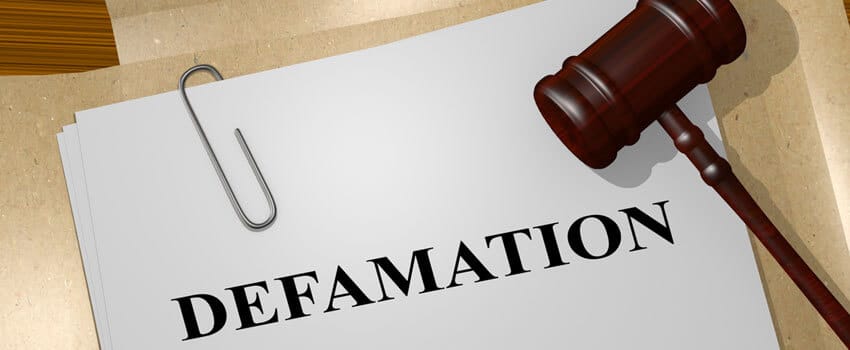Has a competitor ever bad-mouthed your business online?
How about a disgruntled customer?
Did an anonymous poster say something on an Internet forum that caused your stock or startup to sink?
If you have suffered the pangs of a vicious business rumor or accusation, you may have thought about filing a trade libel or defamation lawsuit.
But the question is: do you have a valid case?

What You Need To Prove To Win A Defamation Lawsuit
Libel (written defamation) and slander (spoken defamation) are a lot more than a negative comment. In order for plaintiffs to win slander or libel lawsuits, they must prove that:
- The defendant made an unprivileged, verifiably false statement of fact about them;
- The statement at issue made it into the public discourse;
- The material under review caused the plaintiff material or reputational harm; and
- The defendant either acted with actual malice or negligently.
Is There A Difference Between Online and Offline Defamation?
Generally speaking, the same rules apply for both online and offline slander and libel. Whether a defamatory statement appears on a website or in a print publication, plaintiffs must satisfy the four base elements of defamation, as it is legally defined, to win a case.
However, technical differences in how the fundamental law is applied do arise in online defamation cases. For example, since the viral nature of the Web means an increased likelihood of re-publication, questions about statutes of limitations often become a bigger deal in Internet libel cases than traditional print-media libel lawsuits.
Remember: Opinion Is Not Defamatory, But Lying Is
The First Amendment means U.S. citizens can gripe, opine and air truthful dirty laundry to our hearts’ content. If we have a bad experience with a business, we can yell about it on Yelp! or RipOffReport. If we think a political candidate is the second-coming of Joffrey Baratheon, we can share our opinion with the Twitterverse, without fear of repercussion.
But there are limits to free speech: you can’t scream fire in a crowded room, and you can’t lie about a competitor or adversary, in an effort to harm their reputation.
Defamation Crib Sheet: The 5 Basic Things To Remember About Defamation Law
- It’s not defamation (slander / libel) if it’s true. (This is true 99% of the time. Moreover, other torts can be used for private information unwittingly made public.)
- It’s not defamation if it doesn’t cause material harm or harm to a reputation.
- It’s not defamation if the statement in question is “privileged”.
- It’s not defamation if the plaintiff can’t sufficiently prove actual malice or negligence on the part of the defendant.
- It IS defamation to haphazardly publish or broadcast a false statement of fact that causes harm to another party.
Businesses compete – and well they should. But there is a difference between being aggressive and being underhanded. Defamation falls in the latter category.

This post is sponsored by Kelly Warner. I was invited to this opportunity by Quality Blue Community and I received compensation for my time. All opinions expressed in this post are my own.
Source: www.BusinessDefamation.com

